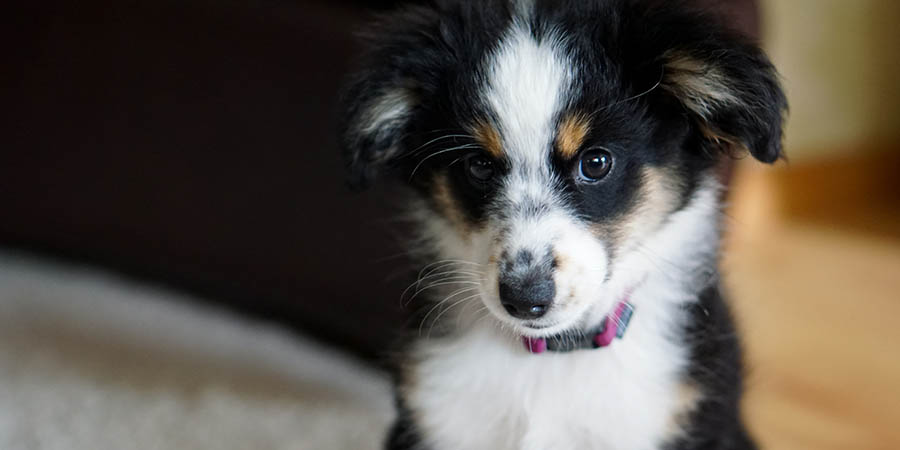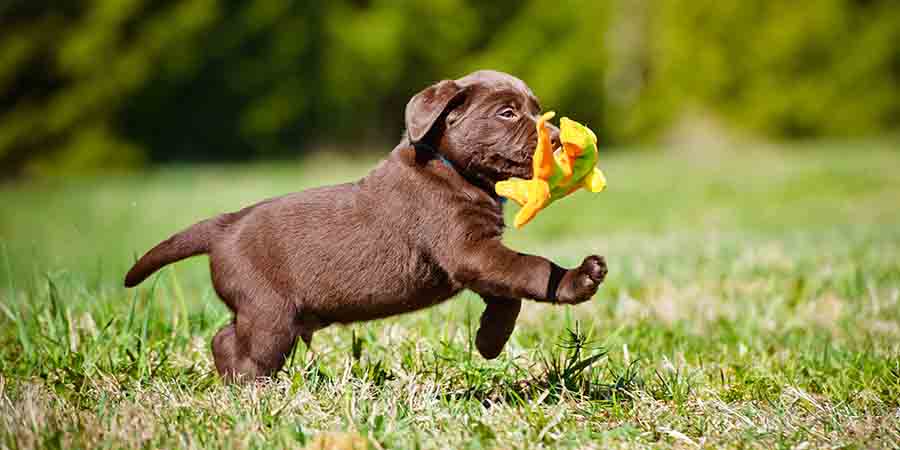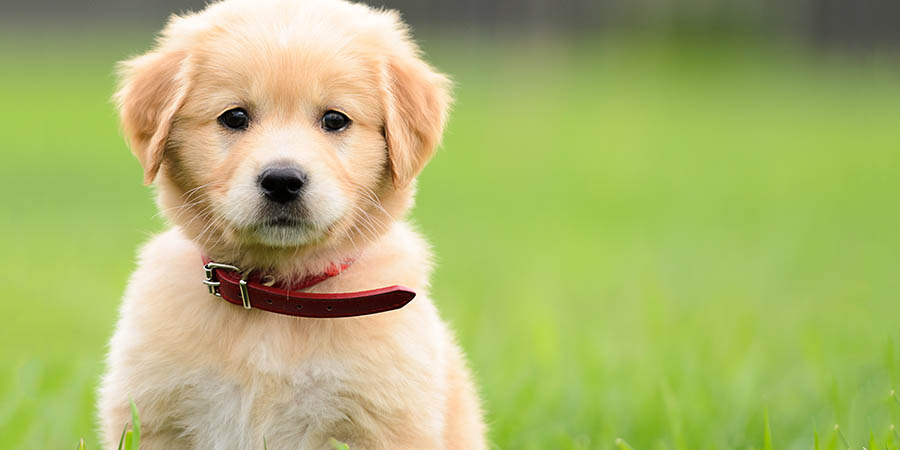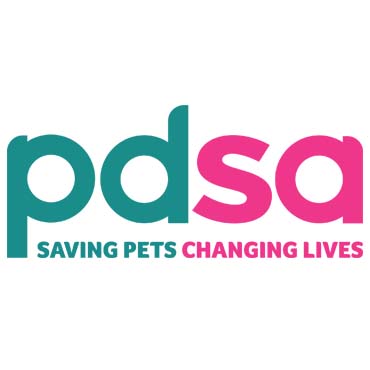For successful socialisation, puppies need to be exposed to lots of different experiences. This needs to be done in a safe and positive way for you and your puppy. If this is done right, it can help prevent behaviour problems when your dog is older. During the current Coronavirus (Covid-19) pandemic, this may be more difficult to do. We now need to stay in our homes, and puppies will not be able to be vaccinated as vet teams follow Government advice to provide emergency services only. However, there are still ways you can introduce your puppy to the world safely.
It's important to take things slowly - too much too soon can be a lot for your puppy to take in. The best way to do this is to pair each experience with something good (e.g. a treat) so they create positive associations with it. If they seem scared of the experience, you’ll need to calmly take them away from it, so they don’t develop a long term fear.
In the home

Happy handling
This is all about teaching your puppy that its OK to let people touch them, and that touch is good! This will really help when they have vet appointments in the future. Start by gently touching their ears and give a tiny piece of a treat. Then do the same when touching their nose and mouth. If they're OK with this, repeat and reward several times. If they try to pull away and don’t seem to like it, touch them softer and for less time and pair with a reward. The goal is to have them not react to handling and to want to be touched. Continue this with the rest of their body and use this same process with picking them up. Do this in short, separate sessions, so they stay interested and make sure they have a break in between for your puppy to play or rest.
Scary sounds
Many sounds can be scary to dogs. Vacuums, hair-dryers, construction sounds, storms, fireworks... to name just a few! The idea is that you want to get your puppy used to these early on, and to learn that there is nothing scary about them. You can find many different sounds online to use to help you to do this. Start by playing these at very low volumes and reward when they are calm. Once they aren’t reacting at all, gradually increase the sound and continue rewarding. This process will take several days, as it's important to do it very gradually, with rewards, so it becomes normal for them. If they seem unsettled, scared or hide at any point, you will have to turn the volume back down to when they were calm and start building from the beginning again, slower than before.
New objects
Let your puppy investigate different objects, especially strange things they might not have seen before – bikes, umbrellas etc. Use a range of objects of different size, texture and shape, and don’t forget to keep rewarding your puppy! Show them to different types of clothing – hats, sunglasses, large coats etc. If the kids have masks and dress-up costumes, it's great to let them have fun with the puppy whilst wearing them. Remember to pair each experience with a reward and don’t let everyone get too overexcited!
In the garden

Your puppy should be fine to play in your garden if it is enclosed, safe, and free from other animals, such as foxes. If you’re happy that your garden is safe, then your puppy will be fine to spend time there before they have been vaccinated, especially to help with toilet-training and get them used to outside sounds, such as road noise. If you have other family dogs, who are fully vaccinated, it's fine to let them interact with your new puppy, but make sure you’re supervising in case play turns a bit rough!
Outside of the house

As vets are not able to vaccinate dogs at the moment, puppies can’t be walked in public spaces as the risk of contracting a serious disease is too high. For now, they’ll only be able to run around in their home and safe, secure garden. Think about what they’ll need to be calm around as an adult dog and get creative about how you can recreate that experience. You can still show them the outside world from your window and from your arms, letting them hear traffic noises, watch the postman come to your door and see passers by. When’s your bin day? Be ready with treats so you can use the moment (while inside the house) to let them know that there isn’t anything to be worried about.
You can walk outdoors whilst carrying your puppy, so use where you live to your advantage during your one exercise period each day. If you live in a rural area near farm animals, whilst carrying them (or using a dog-buggy for heavier breeds), let them see and smell a variety of animals. They will be able to smell them from a distance so you don’t need to be really close.
If you live in an urban area, let them see the moving traffic and let them see other people and dogs, but remember to keep your social distance of at least two metres and don't let other people touch your puppy due to the risk of spreading the virus. If it’s getting too much for them, take them back home or to a quieter area where they are calmer. Remember, we want them to have the best experience possible!
It may be tempting to want to work on socialisation lots whilst you are at home, but puppies need a lot of time to sleep and relax too, so make sure they get lots of time to chill out!
Socialisation checklist
Surfaces (in the home and garden)
- Concrete
- Slippery floors
- Metal surfaces
- Wobbly surfaces
- Plastic
- Stairs
- Wet grass
- Mud
Sounds
- Thunder
- Fireworks
- Babies and children
- Alarms and sirens
- Dogs barking
- Doorbell
- Traffic
- Vacuum
- Hair-dryer
- Washing machine

